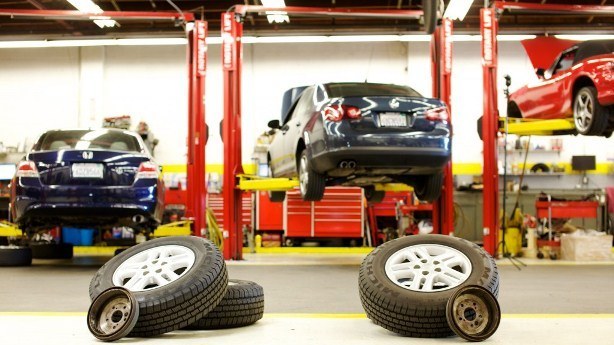All Categories
Featured
Your car's brakes are one of the most critical components in guaranteeing your security and the safety and security of others on the roadway. Routine brake assessments are essential to keeping ideal stopping efficiency and avoiding expensive repair services. Whether you're a skilled car proprietor or a brand-new motorist, recognizing brake examination guidelines can aid you stay proactive concerning upkeep and ensure your car is constantly roadworthy.
- Why Brake Inspections Issue. Brakes go through consistent wear and tear. The more you drive, the a lot more rubbing your brake pads endure, eventually leading to lowered braking performance. Without appropriate examination, it's challenging to gauge when your brakes may be in need of repair work. Routine brake checks help identify concerns beforehand, avoiding prospective failings that can place you in jeopardy.
A properly maintained brake system makes sure fast, responsive stopping power, especially in emergencies. It likewise helps extend the life of your automobile, as neglecting brake upkeep can lead to more serious, pricey problems later.
- Indicators You Need a Brake Examination. While it's critical to have your brakes evaluated occasionally, particular indicators may indicate that they need attention. Keep an eye (and ear) out for these caution signals:
Squealing or Grinding Noises: Uncommon noises, specifically a shrill screech or grinding noise, commonly suggest that your brake pads are put on down. Vibration or Pulsation: If you really feel vibrations or a pulsing feeling when pressing the brake pedal, it might be an indication of warped rotors or irregular brake pad wear. Minimized Brake Responsiveness: If your brakes feel much less receptive or you need to press the pedal harder to reduce down, it might indicate air in the brake lines or reduced brake liquid. Drawing to One Side: If your vehicle pulls away when stopping, it might mean irregular brake pad wear or a brake fluid leak. Dashboard Warning Lights: Some automobiles have brake-related warning lights that show concerns like reduced brake liquid or used brake parts. If you discover any of these symptoms, it's essential to have an expert mechanic do a brake examination as quickly as possible.

- What Takes place During a Brake Inspection? Throughout a brake evaluation, a technician will examine several vital elements of the braking system to ensure every little thing is in working order. Right here's what you can anticipate throughout the process:
Brake Pads and Shoes: The technician will certainly inspect the density of the brake pads or footwear. If they're as well slim, they'll require to be changed. Brake Rotors: Rotors are the discs that the brake pads press against to reduce your cars and truck down. They'll be looked for any kind of signs of wear, scoring, or warping. Brake Fluid: Reduced or infected brake fluid can harm braking efficiency. The service technician will examine the liquid level and high quality and top it up or purge it if needed. Brake Lines and Pipes: Brake lines lug fluid from the master cylinder to the brakes. The mechanic will certainly check for any kind of leakages, fractures, or damage to make sure appropriate liquid circulation. Brake Calipers and Wheel Cylinders: Calipers and wheel cyndrical tubes press the brake pads versus the rotors or drums. The specialist will certainly look for wear, leakages, and correct procedure. 4. How Usually Should You Have Your Brakes Checked? The frequency of brake examinations depends upon variables like your driving behaviors, the kind of automobile you drive, and the atmosphere in which you drive. As a general policy, it's a great idea to have your brakes inspected every 12,000 miles or annually. Nonetheless, if you experience any one of the warning indications stated earlier, it's vital to obtain your brakes checked promptly.
For those who often drive in rush hour, mountainous terrain, or severe weather, more frequent inspections might be needed.
- Significance of Timely Brake Fixes. When you spot a problem with your brakes, it's necessary to address it today. Delaying brake repair work can bring about more substantial damage to your stopping system, resulting in higher repair service costs. In severe instances, neglecting brake issues can result in complete brake failing, which is a significant security risk.
By remaining on top of brake upkeep and attending to concerns quickly, you make certain that your brakes proceed to execute as planned, keeping you and your passengers secure when driving.
Final Thought: Maintain Your Brakes in Top Shape. Brake examinations are an easy yet vital part of car upkeep. By understanding the importance of normal examinations, knowing the indicators of brake problems, and staying proactive with repair work, you can guarantee your vehicle's stopping system remains in optimum problem.
Latest Posts
Budget Friendly Deluxe: Discover the Perks of Laminate Flooring
Elegant Safety Starts Below
Empowering Young people with WyHy's Monetary Devices
